Things You Didn’t Know About Relationship Counseling
Relationships can be both incredibly rewarding and remarkably challenging. Whether you’re navigating the early stages of a new romance or striving to rekindle the spark in a long-term partnership, there may come a time when you consider relationship counseling. While it’s often viewed as a last resort, there are many aspects of relationship counseling that people may not be aware of. In this blog, we’ll explore some of the lesser-known facts and benefits of seeking professional help for your relationship.
It’s Not Just for Troubled Relationships
Contrary to popular belief, relationship counseling is not exclusively for couples on the brink of separation or divorce. Many couples turn to counseling as a proactive measure to strengthen their relationship. It can serve as a valuable resource for enhancing communication, improving intimacy, and deepening emotional connections.
Individual Growth is Encouraged
Relationship counseling isn’t solely about addressing issues within the partnership. Counselors often encourage individual self-discovery and personal growth. By working on yourself, you can positively impact the dynamics of the relationship.
It’s Not About Taking Sides
A skilled relationship counselor is impartial and does not take sides in disputes. Their role is to facilitate constructive conversations, encourage empathy, and guide both partners toward mutual understanding and resolution.
It Offers Practical Tools
Counseling equips couples with practical tools and strategies for addressing conflicts, improving communication, and building a healthier partnership. These tools can be applied long after the counseling sessions have ended.
Privacy is Respected
Confidentiality is a cornerstone of relationship counseling. Counselors are bound by strict ethical guidelines to keep your discussions private. This creates a safe space for open and honest communication.
It Can Be Short-Term or Ongoing
The duration of relationship counseling varies based on individual needs. Some couples may benefit from just a few sessions to address specific issues, while others may choose to engage in long-term therapy for ongoing support and personal growth.
Online Counseling is an Option
In today’s digital age, relationship counseling is not limited to in-person sessions. Online counseling platforms provide convenient access to qualified therapists, allowing couples to receive support from the comfort of their homes.
It Addresses a Wide Range of Issues
Relationship counseling is not limited to conflicts between partners. It can also address issues such as trust, intimacy, financial concerns, blended family dynamics, and even personal trauma that may impact the relationship.
It Can Benefit All Relationship Types
While romantic partnerships are the most commonly associated with relationship counseling, it can be beneficial for all types of relationships, including parent-child, sibling, or friendships. The principles of effective communication and conflict resolution apply universally.
It’s a Safe Space for Vulnerability
Counseling sessions provide a safe and non-judgmental space for partners to express their feelings and concerns honestly. This vulnerability can lead to deeper emotional connections and increased empathy.
Counselors Are Highly Trained Professionals
Relationship counselors undergo extensive training and education to work with couples. They draw from a variety of therapeutic approaches to tailor their methods to the unique needs of each partnership.
It Can Prevent Future Issues
Addressing small issues in the present can prevent them from becoming major challenges in the future. Relationship counseling helps couples develop the skills to navigate conflicts constructively.
Conclusion
Relationship counseling is a valuable resource for couples at any stage of their partnership. It offers far more than crisis intervention; it provides tools for growth, improved communication, and a deeper understanding of each other. By seeking help when needed and embracing the benefits of relationship counseling, you can enhance your relationship and build a stronger, more resilient connection with your partner. Remember, it’s never too early or too late to invest in the health and happiness of your relationship.

